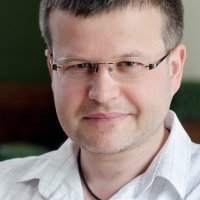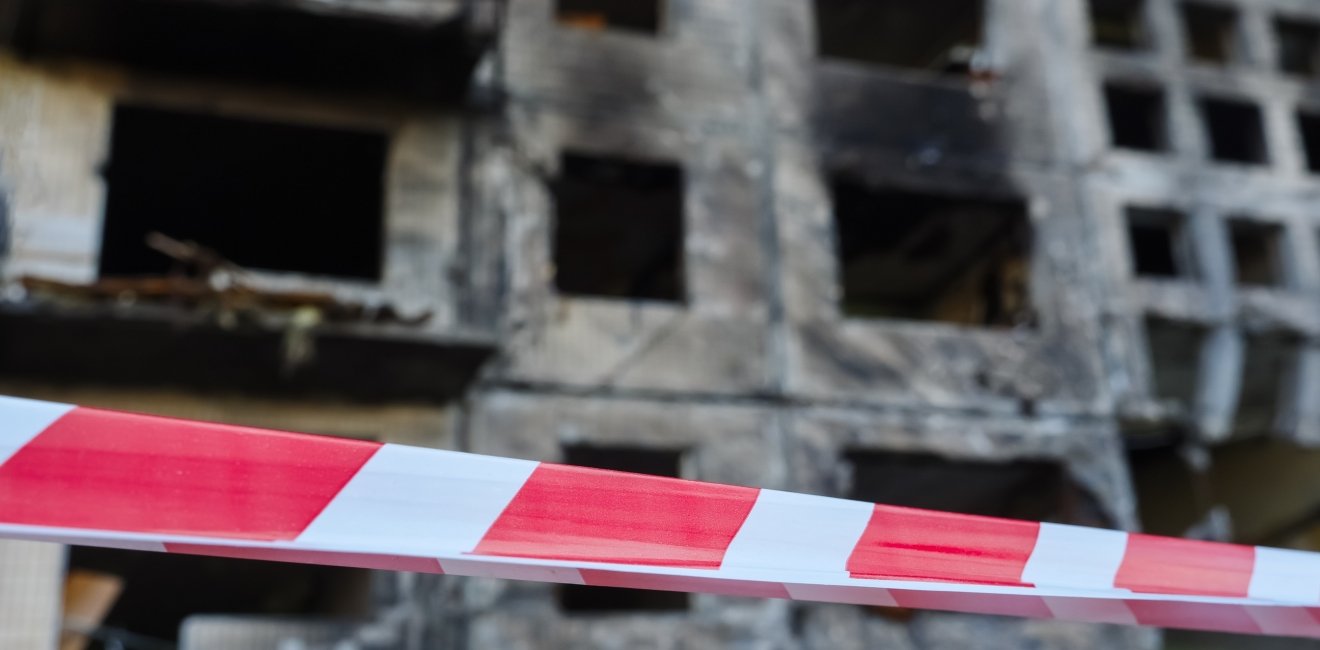
A blog of the Kennan Institute
BY TETYANA MALYARENKO AND BORYS KORMYCH
Until February 2022, Russia had a reputation as one of the trendsetters in military art. The "Gerasimov doctrine" or “hybrid warfare doctrine” articulates the art of achieving political goals by predominantly nonmilitary means—through information warfare, cyberattacks, diplomacy, economic pressure, and coercion, combined with limited or indirect (via proxies) use of conventional forces. However, a widespread fascination with the concept of hybrid warfare pushed into the background any assessment of its legality. The key legal outcome of such a tactic consists in actors denying their responsibility for hybrid operations and attempting to escape the legal consequences of their actions. One should not be misled by terminology like “exploiting legal gaps” or “gray zone.” Hybrid warfare itself violates international and national law, including, critically, humanitarian protections for noncombatants. Such a violation follows logically when an aggressor fails to apply the law of armed conflict to its military operations. Hence, in a case of escalation, small “violations” in a hybrid warfare scenario can very easily transform into brutal war crimes.
Not surprisingly, the Russian-proclaimed “special operation” in Ukraine has very quickly escalated to nonmodern barbarian warfare in which the Russian army only occasionally uses high-precision weapons, purposefully attacks the civilian population and civilian infrastructure, and uses prohibited types of weapons; the massacres that have been carried out against the civilian populations of large cities can in general be interpreted as war crimes. Despite all this, Russian foreign minister Sergei Lavrov after two weeks of war cynically stated that “Russia is not planning to attack other countries and did not attack Ukraine either.”
Russia’s adherence to hybrid rhetoric while waging brutal barbarian warfare has two key implications.
Escalation in Response
The Kremlin leadership viewed the attack on Ukraine as an enormous punitive operation that would result in the physical elimination of pro-Ukrainian and pro-Western politicians and activists. It expected the Russian ingress would rapidly lead to establishing total Russian control of the political and economic life of the country and that Ukraine would be turned into a collection of unrecognized quasi-republics. Such actions have nothing to do with Russia applying Article 51 of the UN Charter, the right of a member nation to self-defense, and they are not consistent with the law of armed conflict. That is why Putin's rhetoric about fighting some mythical “nationalist battalions” can be attributed to a clumsy attempt to pull a “hybrid” cover over a brutal war of conquest.
One-way escalation that leaves no room for compromise can be expected to result in a backlash and escalation by the opponent. On the Ukrainian side, this is a war for simple existence and to preserve national identity and sovereignty. The increasing use of brute force on the part of Russia and the commensurate growth of casualties among the civilian population of Ukraine have fueled Ukrainians’ resentment and prompted the wider involvement of broad segments of society in the conflict, which has now taken on a protracted character. Moreover, absent a substantial collapse of the Russian military position, there appears to be no possible diplomatic solution to the war. Even Ukraine’s possible defeat would not lead to the end of the conflict. For the war in Ukraine is acquiring the characteristics of a “holy war” that can be sustained long term through guerrilla actions, and potentially morph into ethnic conflict. The sacralization of the conflict, the growing understanding of it as a just war waged by the Ukrainian people, contributes to the growth of public support for it, the spread of nonconventional forms of warfare, and Russia’s doubling down on violence.
Human Rights in the Occupied Territories
The behavior of the Russian army toward the civilian population in the Ukrainian territories occupied after February 24, 2022, is similar to how the leaders of the self-proclaimed DPR and LPR behaved in 2014–2015. Russian special services are implementing tactics of societal destabilization: pushing the pro-Ukrainian population out of the temporarily occupied territories, killing and torturing Ukrainian opinion leaders, intimidating the population, radically restricting the rights of the population on these territories. The weakening of Ukrainian state power in the Ukrainian territories under Russian military control may result in a state of anarchy (much as happened in Donetsk and Luhansk in 2014), a war of all against all, and an increase in crime and looting. Attempts to establish a proxy state of the Kherson People's Republic on the territory of the occupied Kherson oblast and the invitation to Syrian militants to take part in restoring order in the occupied territories are among the tactics the Kremlin has tried to shift responsibility for war crimes away from the Russian commanders and onto the shoulders of proxy agents, as happened (and is happening) in Donetsk and Luhansk. If the war drags on, Kyiv should appeal to the international community, first of all to the UN, to take all possible humanitarian measures in the Ukrainian regions under Russian military control to protect the civilian populations there.
Hybrid warfare eventually erodes the status quo while simultaneously permitting aggressors to neglect jus in bello, the law that governs how warfare is conducted, particularly with respect to limiting the suffering of noncombatants. An aggressor engaged in hybrid warfare is limited only by its own considerations and its own interpretations of international law. And whereas specific national procedures and principles exist for a democratic state, authoritarian regimes engaged in hybrid operations are generally not limited by anything. The Ukrainian case clearly shows that any sign of hybrid warfare should be met with a strong reaction of the international community at the earliest possible stage, else the way is open to absolutely unlawful and barbaric military conflict.
The opinions expressed in this article are those solely of the authors and do not reflect the views of the Kennan Institute.
Authors



Kennan Institute
After more than 50 years as a vital part of the Wilson Center legacy, the Kennan Institute has become an independent think tank. You can find the current website for the Kennan Institute at kennaninstitute.org. Please look for future announcements about partnership activities between the Wilson Center and the Kennan Institute at Wilson Center Press Room. The Kennan Institute is the premier US center for advanced research on Eurasia and the oldest and largest regional program at the Woodrow Wilson International Center for Scholars. The Kennan Institute is committed to improving American understanding of Russia, Ukraine, Central Asia, the South Caucasus, and the surrounding region through research and exchange. Read more

Explore More in Focus Ukraine
Browse Focus Ukraine
Talking to the Dead to Heal the Living

Ukrainian Issue in Polish Elections


